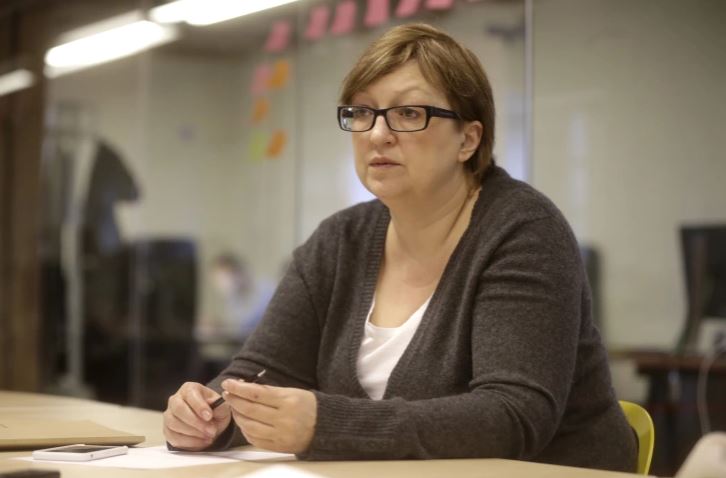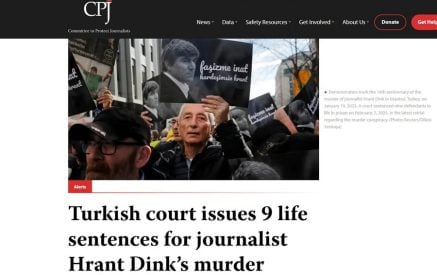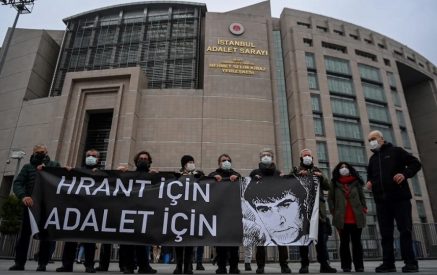The Kremlin was infuriated by editor Galina Timchenko’s coverage of Russia’s incursion into Ukraine. So it pressured her boss to fire her. Timchenko left Moscow with much of the staff from her popular website, moving to Riga, Latvia, where they could work free of Kremlin censorship.
That may sound like today’s news, but it actually happened eight years ago – the last time Russia invaded Ukraine. This year, a new invasion and a new wave of media restrictions have set off a mass exodus, from multiple national and local newsrooms. By one count, at least 150 of Russia’s independent journalists have fled in recent days to Latvia, Lithuania, Armenia, Georgia, and elsewhere.
With honest journalism essentially criminalized in Russia now, many who have left are working to create new newsrooms in exile.
Exile journalism is something Timchenko and her colleagues know well. When they left for the Latvian capital of Riga in 2014 they founded Meduza, a news site that’s grown into one of the largest and most popular independent Russian news sources. Timchenko is now its CEO and publisher. Several other prominent journalists have used similar models in recent years to set up investigative sites outside Russia – beyond the reach of censorious bureaucrats, like the notorious media regulator Roskomnadzor.
Read also
But reporting for these sites was done by journalists inside Russia, who remained vulnerable to repression – as Meduza was reminded in 2019 when its investigative reporter Ivan Golunov was arrested on false drug charges in Moscow (police were forced to let Golunov go after a loud public outcry in his defense).
The risks for doing independent reporting in Russia grew exponentially this month with harsh new restrictions, including criminal penalties for those who call the war in Ukraine “war.” Entire newsrooms closed or relocated, rather than contend with the onerous new censorship regime. And those that already had operations abroad, like Meduza, quickly began evacuating anyone still inside Russia.
Working outside Russia leaves journalists free to write about the Война, or War (the word is in big, bold type at the top of Meduza’s home page), without fear of semantic censorship. Meduza’s coverage is done by special correspondents, contributors and photographers reporting in war zones across Ukraine.
But exile journalism needs financial support, and Meduza and other newsrooms are now cut off from all funds in Russia. And Russian audiences are blocked from directly accessing their sites; Instagram and other social media platforms they use are also blocked.
In a March 12 interview, Timchenko spoke about the legal, financial, and logistical roadblocks for covering the “special military operation” (the term Russian law now requires media to use in describing the war). These are lightly edited excerpts from the interview.
Is Meduza’s journalism different as a result of the new law on fake information?
We have no intention to follow these new censorship rules. We will call the war “the war,” intrusion, invasion, and so on. And all our journalistic team agreed that we are not under censorship and we will write what we have to write, what we must do. Because eight years ago we left Moscow and Russia for the European Union just to follow our journalistic principles, and we will not bow under this censorship.
So you are still doing what you were doing before the law changed?
Absolutely, with no looking back. We’re just doing our job without any fear to be blocked, because – okay, they [Russia] could list us as an extremist organization, or terrorists. Or they could charge us with state treason. I’m sorry to use these words, but we don’t give a damn.
If you were named “undesirable” or “extremist” under Russian law, that’s not going to affect Western funding?
Absolutely not. Our main goal [for funding now] is our Western readers and Western partners. Russian authorities have no power outside Russia.
[Editor’s note: 70 percent of Meduza’s audience is inside Russia, but since funding can no longer be accessed from there, Meduza is now focusing financial appeals on readers of its English-language site.]
Where is your website blocked at this point, and where and how can people still find Meduza?
Since the war started, we realized that we will be blocked in Russia. So we started preparing, because we – me and Ivan Kolpakov [editor-in-chief] – we are all negative thinkers. We started a promo campaign for VPN [virtual private networks] on how to avoid blocking. We started a promo campaign on downloading our mobile application, our Telegram channel. And we succeeded because we doubled the audience of our Telegram channel [from 400,000 to 1 million]. And doubled the audience of our mobile application [from 300,000 downloads to 700,000].
But we are losing platforms. Because inside Russia, Facebook is blocked. Instagram will be blocked in two days [Russia shut access to Instagram on Monday, March 14]. And the main Russian social media, VKontakte, just removed and deleted our page. So we lost three platforms.
Our main hope is connected with Telegram channel and with our email newsletter and email subscription.
Committee to Protect Journalists























































